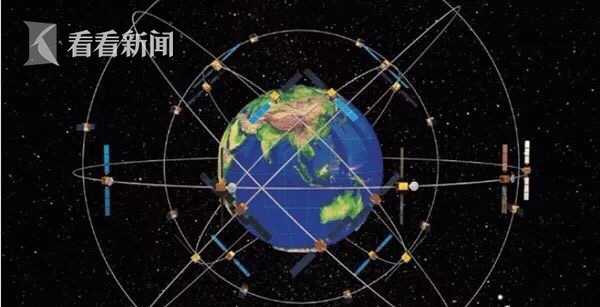
1. The five major functions of the operating system include: process and processor management, operation management, storage management, equipment management and file management.
2. A [Analysis] As the manager of the resources of the computer system, the main function of the operating system is to manage and schedule all the software and hardware resources of the system reasonably and improve the overall performance of the computer system.
3. Operating System (abbreviation: OS) is a group of interrelated system software programs that supervise and control computer operation, use and run hardware, software resources and provide public services to organize user interaction.
4. The main function of the operating system: process management. Resident programs and applications run on the basis of the process.When the computer adopts the von Neumann structure, each CPU can only run one process at a time.
5. The operating system has five functions: processor management: mainly controls and manages the work of the CPU. Storage management: mainly allocate and manage memory. Device management: mainly manage basic input and output devices. File management: responsible for the organization, storage, operation and protection of computer files.
6. The operating system has five functions: processor management: mainly controls and manages the work of the CPU. Storage management: mainly carry out memory allocation and management device management: mainly manage basic input and output device file management: responsible for the organization, storage, operation and protection of computer files, etc.

1. The storage management function of the operating system is to manage memory resources. It mainly realizes memory allocation and recovery, storage protection and memory expansion. The device management of the device management operating system is responsible for allocating and recycling external devices, and controlling external devices to operate according to the requirements of user programs.
2. The functions of the computer operating system include: processor management, memory management, device management, file management, job management and other functional modules. Processor management. The most basic function of processor management is to handle interrupt events. The processor can only detect interrupt events and generate interrupts and cannot process them.
3. The five major functions of the operating system are processor management, memory management, device management, file management and job management. Processor management The most basic function of processor management is to process interrupt events. After configuring the operating system, various events can be processed.
1. The main functions of the computer operating systemIt is process management. Its work is mainly process scheduling. In the case of a single user and a single task, the processor is only exclusive to one user's task. The work of process management is very simple.
2. The five major functions of the operating system are processor management, memory management, device management, file management and job management. Processor management The most basic function of processor management is to process interrupt events. After configuring the operating system, various events can be processed.
3. The role and basic functions of the operating system: the basic functions of the operating system include task management, interface management, human-computer interaction, graphical interface, voice control and virtual reality, etc.; file management; storage management, which is essentially the management of storage "space", mainly refers to the management of the main memory. Reason.
4. The basic functions of the operating system include process management, memory management, file system, network communication, security mechanism, user interface and driver. The operating system is the interface between the user and the computer, and also the interface between computer hardware and other software.
5. The five functions of the operating system are processor management, memory management, device management, file management and job management. Processor management The most basic function of processor management is to handle interrupt events. After configuring the operating system, various events can be processed.
6. The operating system has five functions: processor management: mainly controls and manages the work of the CPU. Storage management: mainly allocate and manage memory. Device management: mainly manage basic input and output devices. File management: responsible for the organization, storage, operation and protection of computer files.
Binance US-APP, download it now, new users will receive a novice gift pack.
1. The five major functions of the operating system include: process and processor management, operation management, storage management, equipment management and file management.
2. A [Analysis] As the manager of the resources of the computer system, the main function of the operating system is to manage and schedule all the software and hardware resources of the system reasonably and improve the overall performance of the computer system.
3. Operating System (abbreviation: OS) is a group of interrelated system software programs that supervise and control computer operation, use and run hardware, software resources and provide public services to organize user interaction.
4. The main function of the operating system: process management. Resident programs and applications run on the basis of the process.When the computer adopts the von Neumann structure, each CPU can only run one process at a time.
5. The operating system has five functions: processor management: mainly controls and manages the work of the CPU. Storage management: mainly allocate and manage memory. Device management: mainly manage basic input and output devices. File management: responsible for the organization, storage, operation and protection of computer files.
6. The operating system has five functions: processor management: mainly controls and manages the work of the CPU. Storage management: mainly carry out memory allocation and management device management: mainly manage basic input and output device file management: responsible for the organization, storage, operation and protection of computer files, etc.

1. The storage management function of the operating system is to manage memory resources. It mainly realizes memory allocation and recovery, storage protection and memory expansion. The device management of the device management operating system is responsible for allocating and recycling external devices, and controlling external devices to operate according to the requirements of user programs.
2. The functions of the computer operating system include: processor management, memory management, device management, file management, job management and other functional modules. Processor management. The most basic function of processor management is to handle interrupt events. The processor can only detect interrupt events and generate interrupts and cannot process them.
3. The five major functions of the operating system are processor management, memory management, device management, file management and job management. Processor management The most basic function of processor management is to process interrupt events. After configuring the operating system, various events can be processed.
1. The main functions of the computer operating systemIt is process management. Its work is mainly process scheduling. In the case of a single user and a single task, the processor is only exclusive to one user's task. The work of process management is very simple.
2. The five major functions of the operating system are processor management, memory management, device management, file management and job management. Processor management The most basic function of processor management is to process interrupt events. After configuring the operating system, various events can be processed.
3. The role and basic functions of the operating system: the basic functions of the operating system include task management, interface management, human-computer interaction, graphical interface, voice control and virtual reality, etc.; file management; storage management, which is essentially the management of storage "space", mainly refers to the management of the main memory. Reason.
4. The basic functions of the operating system include process management, memory management, file system, network communication, security mechanism, user interface and driver. The operating system is the interface between the user and the computer, and also the interface between computer hardware and other software.
5. The five functions of the operating system are processor management, memory management, device management, file management and job management. Processor management The most basic function of processor management is to handle interrupt events. After configuring the operating system, various events can be processed.
6. The operating system has five functions: processor management: mainly controls and manages the work of the CPU. Storage management: mainly allocate and manage memory. Device management: mainly manage basic input and output devices. File management: responsible for the organization, storage, operation and protection of computer files.
Binance Download for PC Windows 10
author: 2025-01-10 17:46 Binance exchange
Binance exchange
228.67MB
Check OKX Wallet apk download latest version
OKX Wallet apk download latest version
897.96MB
Check Binance app
Binance app
866.13MB
Check OKX app
OKX app
156.41MB
Check Binance login
Binance login
837.92MB
Check OKX Wallet
OKX Wallet
637.31MB
Check OKX Wallet app
OKX Wallet app
318.29MB
Check OKX Wallet Sign up
OKX Wallet Sign up
418.17MB
Check OKX Wallet app
OKX Wallet app
317.21MB
Check OKX review
OKX review
922.45MB
Check Binance market
Binance market
535.86MB
Check Binance download iOS
Binance download iOS
626.35MB
Check Binance US
Binance US
327.41MB
Check OKX Wallet app
OKX Wallet app
244.83MB
Check Binance login App
Binance login App
136.22MB
Check Binance login
Binance login
151.38MB
Check Binance US
Binance US
467.58MB
Check Binance download Android
Binance download Android
788.18MB
Check Binance app download Play Store
Binance app download Play Store
985.48MB
Check Binance wallet
Binance wallet
113.26MB
Check OKX Wallet login
OKX Wallet login
451.67MB
Check Binance app
Binance app
884.88MB
Check Binance APK
Binance APK
229.29MB
Check Binance download
Binance download
381.62MB
Check Binance exchange
Binance exchange
558.73MB
Check Binance download Android
Binance download Android
457.39MB
Check Binance login App
Binance login App
883.49MB
Check Binance login
Binance login
352.98MB
Check OKX review
OKX review
143.95MB
Check OKX download
OKX download
733.48MB
Check Binance Download for PC
Binance Download for PC
444.53MB
Check OKX app
OKX app
453.49MB
Check Binance Download for PC Windows 10
Binance Download for PC Windows 10
466.32MB
Check OKX Wallet extension
OKX Wallet extension
295.18MB
Check OKX Wallet extension
OKX Wallet extension
744.39MB
Check Okx app download
Okx app download
345.77MB
Check
Scan to install
Binance US to discover more
Netizen comments More
771 鹬蚌相争网
2025-01-10 17:16 recommend
1469 同类相求网
2025-01-10 17:11 recommend
2548 机事不密网
2025-01-10 17:03 recommend
1287 好说歹说网
2025-01-10 16:29 recommend
799 径行直遂网
2025-01-10 16:12 recommend